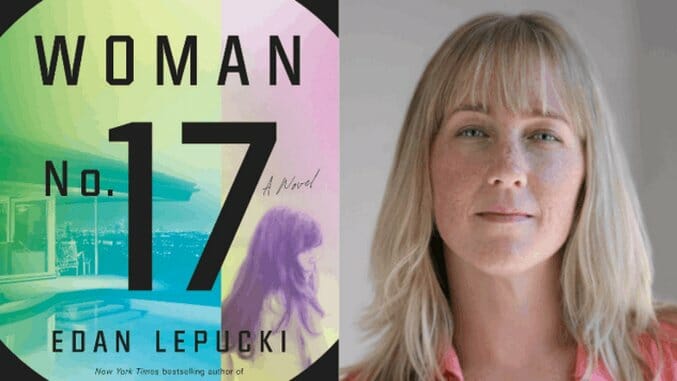Edan Lepucki Talks Twisted Motherhood and Her New Novel, Woman No. 17
Author photo by Adam Karsten
Novelist Edan Lepucki is fascinated by motherhood. In her acclaimed debut, California, pregnancy in a dystopian community threatens a couple’s survival. And in her latest novel, Woman No. 17, mothers and daughters quarrel to destructive ends.
Woman No. 17 introduces Lady, a wealthy mother of two boys: toddler Devin and teenager Seth. Seth is mute and has never met his father, who left Lady and her infant son years before.
“The actual first seed of the novel was when my son was 15 months old and he wasn’t speaking yet,” Lepucki says in an interview with Paste. “Everyone told me he would speak, he would speak, but I started thinking about what it would be like to have a child who didn’t speak and what that relationship between mother and child would be like.”
Like Lepucki, Lady is also a writer. While working on a memoir about Seth’s disability, Lady hires S, a recent graduate with a passion for art, to help with childcare. Both women are haunted by complex relationships with their mothers. Lady’s mother was overbearing yet emotionally cold, and she kept Lady’s father out of the picture through manipulation. S’s mother proves loving and cruel by turns, prone to verbally abusing S when she’s had too much to drink.
 Lady and S go to two extremes as they grapple with their mothers’ influence, creating a captivating study in intergenerational relationships. Lady hasn’t spoken to her mother in over a decade, but S is unable to severe ties with her own mother. Instead, S begins a challenging art project in which she attempts to become her mother. Even taking the nanny job is part of the effort, and the S that Lady gets to know is actually a recreation of S’s mother rather than S’s true self.
Lady and S go to two extremes as they grapple with their mothers’ influence, creating a captivating study in intergenerational relationships. Lady hasn’t spoken to her mother in over a decade, but S is unable to severe ties with her own mother. Instead, S begins a challenging art project in which she attempts to become her mother. Even taking the nanny job is part of the effort, and the S that Lady gets to know is actually a recreation of S’s mother rather than S’s true self.
Lepucki explains that she has had a longstanding interest in how people react to toxic family relationships. “I’m obsessed with what it’s like to inherit familiar dynamics that aren’t healthy, and how we repeat things,” she says. “It’s such a specific element of humanity, but I wonder if generationally we deal with it in different ways. “
-

-

-

-

-

-

-

-

-

-

-

-

-

-

-

-

-

-

-

-

-

-

-

-

-

-

-

-

-

-

-

-

-

-

-

-

-

-

-

-








































